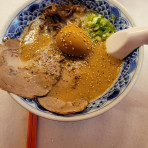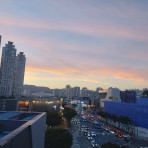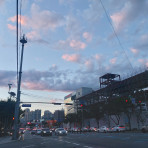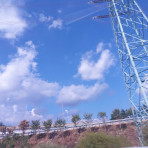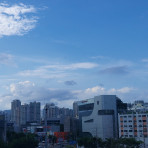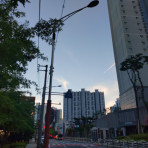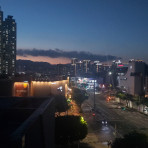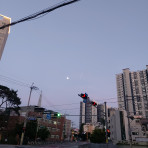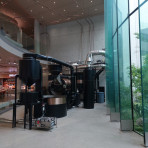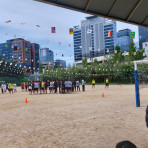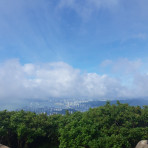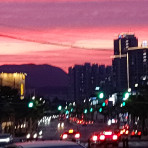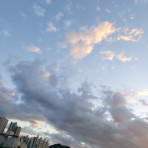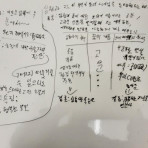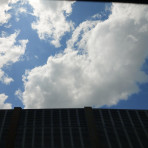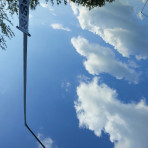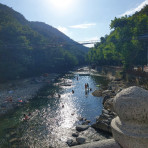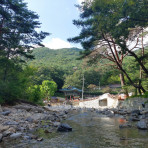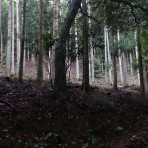Hong Kong adds hundreds of surveillance cameras in public places
본문
Tue, 13 Feb 2024 15:16:46 -0500

Hong Kong will add thousands of surveillance cameras on the streets and could use facial recognition to track the movements of residents, sparking concerns of totalitarian monitoring of citizens' every move amid an ongoing crackdown on public dissent.
Police Commissioner Raymond Siu said plans are already under way to install some 2,000 additional surveillance cameras in public places "to prevent crime, monitor public safety and public order," government broadcaster RTHK reported, citing comments made by Siu on one of its talk shows.
That figure will likely just be the start, Siu said, adding that more cameras will likely need to be installed.
The move comes amid an ongoing crackdown on public protest, peaceful activism and freedom of speech in Hong Kong in the wake of the 2019 democracy movement. Thousands have been arrested on public order charges and hundreds under the 2020 National Security Law, which bans criticism of the authorities or references to the protests.
Hong Kong Police Commissioner Raymond Siu attends a press conference at police headquarters in Hong Kong, Feb. 6, 2024. (Li Zhihua/China News Service/VCG via Getty Images)
As early as 2019, protesters were damaging and toppling controversial "smart lampposts" that had been newly installed in the city, saying their specification included facial recognition functions, although officials said at the time they hadn't been activated.
More than 600 cameras will be installed as early as March, in addition to CCTV networks already installed in public housing estates and government cultural and leisure facilities, Siu said.
No need to worry
He said the use of facial recognition technology to track people caught by the cameras was also likely in future.
“We are still in the preparation phase, but we will not rule out the possibility [of using facial recognition] as technological advancements can definitely help us be more effective in law enforcement and other areas,” Siu said in comments also reported by the South China Morning Post newspaper.
“Citizens do not have to worry. Police will make use of these technologies to combat crimes, but we will do so lawfully," he said.
There is also concern that a massive network of 5G networked bodycams increasingly worn by police officers in the city could result in a facial recognition system similar to China’s, according to opposition politicians, sparking fears that the city will soon be subject to totalitarian monitoring.
Riot police wear helmet cameras on China’s National Day in Hong Kong, Oct. 1, 2020. (Kin Cheung/AP)
Exiled former pro-democracy lawmaker Ted Hui said the cameras were more likely to be used to target political suspects rather than street criminals, however.
"The Hong Kong police have been focused on preventing political crimes over the past four years," Hui said, adding that he expects to see cameras installed at former protest hotspots like Victoria Park, Causeway Bay, the Legislative Council and government headquarters.
"They could also use them outside of court buildings when political cases are being heard to record the details of people attending sporadic and spontaneous protests, then using the information to settle scores later on," he said. "This is the most worrying thing."
Article 23
Just installing cameras in locations like the subway could scoop up vast amounts of information, given the density of Hong Kong's population, said Alric Lee, Executive Director of the Japan Hong Kong Democracy Alliance.
He said the cameras, combined with a suite of new "national security" offenses in forthcoming Article 23 legislation, could enable police to keep tabs on people remotely.
"While the police normally don't have the manpower to keep tabs on everyone, with a system like this they can use big data to identify key figures," Lee said. "Cameras with facial recognition in MTR stations alone would collect data on a huge number of people."
"Used in conjunction with the Article 23 legislation, it could become a new tool for prosecutions," he said.
People gather at the Dahua Technology booth during the China Public Security Expo in Shenzhen, China, Oct. 29, 2019. The AI in cameras made by Dahua Technology appears to be explicitly aimed at quelling protests, says a U.S.-based surveillance research company that first reported the technology’s existence. (Andy Wong/AP)
Taiwanese national security researcher Shih Chien-yu said large numbers of surveillance cameras in Hong Kong raise concerns that the city could become as heavily monitored as China's northwestern Xinjiang region.
"Beijing knows that it hasn't convinced many in Hong Kong, and people will worry about Xinjiangization," Shih said. "These cameras can rotate through 360 degrees and the use of AI technology will then basically cover all groups of people and all kinds of activities."
"There is a strong symbolic message here, which is to warn Hong Kongers to stop thinking about democracy, or about rising up, resisting or speaking out," he said.
Translated by Luisetta Mudie. Edited by Malcolm Foster.

Hong Kong will add thousands of surveillance cameras on the streets and could use facial recognition to track the movements of residents, sparking concerns of totalitarian monitoring of citizens' every move amid an ongoing crackdown on public dissent.
Police Commissioner Raymond Siu said plans are already under way to install some 2,000 additional surveillance cameras in public places "to prevent crime, monitor public safety and public order," government broadcaster RTHK reported, citing comments made by Siu on one of its talk shows.
That figure will likely just be the start, Siu said, adding that more cameras will likely need to be installed.
The move comes amid an ongoing crackdown on public protest, peaceful activism and freedom of speech in Hong Kong in the wake of the 2019 democracy movement. Thousands have been arrested on public order charges and hundreds under the 2020 National Security Law, which bans criticism of the authorities or references to the protests.
Hong Kong Police Commissioner Raymond Siu attends a press conference at police headquarters in Hong Kong, Feb. 6, 2024. (Li Zhihua/China News Service/VCG via Getty Images)
As early as 2019, protesters were damaging and toppling controversial "smart lampposts" that had been newly installed in the city, saying their specification included facial recognition functions, although officials said at the time they hadn't been activated.
More than 600 cameras will be installed as early as March, in addition to CCTV networks already installed in public housing estates and government cultural and leisure facilities, Siu said.
No need to worry
He said the use of facial recognition technology to track people caught by the cameras was also likely in future.
“We are still in the preparation phase, but we will not rule out the possibility [of using facial recognition] as technological advancements can definitely help us be more effective in law enforcement and other areas,” Siu said in comments also reported by the South China Morning Post newspaper.
“Citizens do not have to worry. Police will make use of these technologies to combat crimes, but we will do so lawfully," he said.
There is also concern that a massive network of 5G networked bodycams increasingly worn by police officers in the city could result in a facial recognition system similar to China’s, according to opposition politicians, sparking fears that the city will soon be subject to totalitarian monitoring.
Riot police wear helmet cameras on China’s National Day in Hong Kong, Oct. 1, 2020. (Kin Cheung/AP)
Exiled former pro-democracy lawmaker Ted Hui said the cameras were more likely to be used to target political suspects rather than street criminals, however.
"The Hong Kong police have been focused on preventing political crimes over the past four years," Hui said, adding that he expects to see cameras installed at former protest hotspots like Victoria Park, Causeway Bay, the Legislative Council and government headquarters.
"They could also use them outside of court buildings when political cases are being heard to record the details of people attending sporadic and spontaneous protests, then using the information to settle scores later on," he said. "This is the most worrying thing."
Article 23
Just installing cameras in locations like the subway could scoop up vast amounts of information, given the density of Hong Kong's population, said Alric Lee, Executive Director of the Japan Hong Kong Democracy Alliance.
He said the cameras, combined with a suite of new "national security" offenses in forthcoming Article 23 legislation, could enable police to keep tabs on people remotely.
"While the police normally don't have the manpower to keep tabs on everyone, with a system like this they can use big data to identify key figures," Lee said. "Cameras with facial recognition in MTR stations alone would collect data on a huge number of people."
"Used in conjunction with the Article 23 legislation, it could become a new tool for prosecutions," he said.
People gather at the Dahua Technology booth during the China Public Security Expo in Shenzhen, China, Oct. 29, 2019. The AI in cameras made by Dahua Technology appears to be explicitly aimed at quelling protests, says a U.S.-based surveillance research company that first reported the technology’s existence. (Andy Wong/AP)
Taiwanese national security researcher Shih Chien-yu said large numbers of surveillance cameras in Hong Kong raise concerns that the city could become as heavily monitored as China's northwestern Xinjiang region.
"Beijing knows that it hasn't convinced many in Hong Kong, and people will worry about Xinjiangization," Shih said. "These cameras can rotate through 360 degrees and the use of AI technology will then basically cover all groups of people and all kinds of activities."
"There is a strong symbolic message here, which is to warn Hong Kongers to stop thinking about democracy, or about rising up, resisting or speaking out," he said.
Translated by Luisetta Mudie. Edited by Malcolm Foster.
좋아요3
이 글을 좋아요하셨습니다
관련링크
등록된 댓글이 없습니다.

